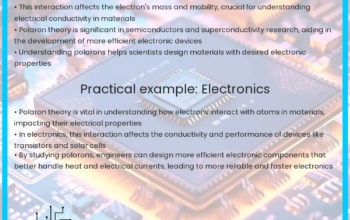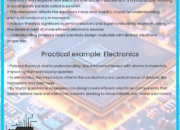Is college education mostly a scam? This provocative question has circulated through the corridors of academia and beyond, igniting fervent debate among students, parents, and educators alike. As the landscape of higher education continues to evolve, it is imperative to dissect this notion critically, particularly from a scientific perspective. The inquiry suggests a challenge—are the benefits conferred by a college education commensurate with its escalating costs, or are students merely duped into believing in its value? This article endeavors to unpack the multifaceted aspects of this issue.
To initiate, it is essential to delineate what constitutes a college education. Traditionally, higher education is viewed as a pathway to acquiring knowledge, developing critical thinking skills, and preparing students for successful careers. However, in contemporary discourse, several significant challenges challenge this paradigm. First among these is the rising cost of tuition. The United States has witnessed a staggering increase in college tuition fees over the past few decades, outpacing inflation and wage growth. The National Center for Education Statistics reports that the cost of public four-year colleges has more than tripled in the past 30 years, leaving many students burdened with insurmountable debt.
This exorbitant financial commitment prompts a critical evaluation of the return on investment (ROI) associated with a college degree. The question arises: does acquiring a degree equate to enhanced employment prospects and, ultimately, greater earnings potential? Empirical studies suggest that, on average, individuals holding a bachelor’s degree earn significantly more than their counterparts without such qualifications. Yet, this generalized assertion masks a more nuanced reality wherein outcomes can differ dramatically based on factors including field of study, institution reputation, and even geographical location. For instance, graduates in STEM fields generally experience superior job placement and wage benefits compared to those in the humanities or social sciences. Consequently, the effectiveness of a college degree as a financial investment warrants a granular examination.
Moreover, we must contend with the alarmingly high dropout rates that plague many institutions. According to the National Student Clearinghouse Research Center, nearly 40% of college students do not complete their degrees within six years. This attrition raises pertinent concerns regarding whether students are genuinely receiving the support and resources necessary to succeed. When one considers the financial implications of incomplete education—students often bear the debt of their failed endeavors without the promise of a degree—the dubious nature of the return on investment becomes starkly illuminated. It is fair to ponder whether such institutions prioritize profit over student success, thus adding fuel to the fire of the ‘scam’ narrative.
Furthermore, the proliferation of for-profit colleges exemplifies another dimension of this discourse. These institutions often leverage aggressive marketing tactics, targeting vulnerable populations with promises of quick and lucrative career paths. Yet, many students find themselves ensnared in a cycle of debt, often resulting in degrees that do not yield the career advancement promised. This raises ethical considerations regarding the responsibilities of educational institutions and their role in perpetuating—or alleviating—economic disparities.
In juxtaposition to these concerns, advocates of higher education assert that the intangible benefits acquired during one’s college years are often overlooked. College serves not merely as a conduit for vocational training but as a crucible for personal growth, where skills such as communication, teamwork, and problem-solving are honed. The collegiate experience fosters networking opportunities that can be invaluable in an increasingly competitive job market. Additionally, it cultivates a sense of civic responsibility and cultural awareness, preparing students to engage meaningfully with the complexities of a globalized society.
Thus, while the question of whether college is a scam may elicit polarizing perspectives, it invites an essential reexamination of what society constitutes as ‘value’ in education. As students confront the transitional period between college and career, the pursuit of knowledge itself must be reconciled with pragmatic considerations of employability and economic sustainability. The advent of alternative educational pathways—such as online certifications, apprenticeships, and vocational training—has introduced viable options for those seeking skills without the financial tumult of traditional college.
Moreover, as an evolving educational landscape defines future opportunities, it underscores the importance of critical thinking. The distinction between fact and opinion becomes paramount, particularly as students navigate the multitude of claims regarding educational efficacy. A discerning approach toward evaluating educational sources, institutional promises, and potential career trajectories will optimally position students to cultivate their academic pursuits with intention and foresight.
Ultimately, the characterization of college education as a scam hinges not solely on its economic implications but encompasses the broader spectrum of personal and societal advancement. The pursuit of knowledge is inherently complex and multifaceted, and efforts to distill the value of education into a binary narrative fail to capture its profound implications. As society progresses into an increasingly complex future, the discourse surrounding higher education must remain fluid, adaptable, and above all, grounded in critical analysis—moving beyond simplistic classifications to engage with the rich tapestry that defines human knowledge and potential.












